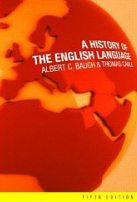 I had a mini break-through this morning that had been building for a while.
As an actor, it took me a long time to learn to relax into roles. I didn't even know it as a technique until Louis and Shakespeare Santa Cruz. Around that time, there was a shift in my acting. An improvement. Father Fred said I grew up out of high school acting. What I did was less affected by what I planned, or thought would be good or funny, and just what happened. I found a more emotionally releasing way of acting, which, whether or it looked better, it felt better.
I have begun to feel the same sort of change in my writing. I've learned that I can't fake it, the best work comes when I'm relaxed and, as my dad say, thinking at the same page as I'm writing. I can feel that metative groove when I'm in it and I can feel it just outside of me when it's close.
I don't know what the solution would be, but I think it might be to warm up before I write. A quick Howard or a few sun salutations. Or maybe even a full on Louis style vocal warm up. I rarely had the patience to do this when I acted, but that really is the problem.
Writing needs to be a matter of listening, and listening needs to be from stillness. I think I'll find stillness through physical conditioning and relaxation.
I just started Theory of the Novel: A Historical Approach (edited by Michael McKeon) and I'm having a hard time with it. It's thick and dense and i'm short on time, but I'm disinterested in categorization as a course of study.
As a writer, I find categorization unhelpful. Perhaps it is a way to teach a number of tools available to a writer, or for a writer to remember them.
Ultimately, however, communication needs to be at the centre of all writing. To borrow an idea from Philip Larkin, writing is a mechanism to transfer an idea from one person to another. There are lots of tools ranging from the language or the objects to publish the writing or performances. Larkin was talking about poetry as a means of transferring an emotion from the poet to the reader, each with a central purpose or a something for the poem to do in the world. I think of my poems as a script for me to read aloud. Novels use the object of a book, with its many words, to transfer more complex emotions and stories. A play is a blueprint to help the actors transfer a concept or a feeling, or simply a story. I, as a writer, have something inside and I want you to know it too. So I write.
Categorization is a game for critics and bookshops owners. For bookshop owners, I get it. Things need to be put on shelves to be sold, and novels are things. (This may be apocryphal, but the word 'novel' is said to come from the novel idea of carrying around your entertainment with you.) For critics, I just don't see the point. It's more about creating a literary in-crowd or influencing how readers see work which would otherwise have to (and be able to) stand on its own. Maybe that makes me a philistine, but I just don't see the point.
What magic is it that binds a group of words into a story? The same magic that binds a group of individuals into a community.
...I have often theorized, come with 2 of the following three: hard word, luck, talent.
Hard word. This is study, developing skills, practice and tenaciously chasing down opportunities.
Lucky. This is finding opportunities which are appropriate to the work that you're working hard on.
Talent. As in innate talent. As in having all the nurses and doctors enraptured before the umbilical cord is cut. If this exists, it is exceedingly rare.
So there it is. Hard work and luck. Of course, this is only theoretical. I haven't exactly achieved this kind of success... but I'm hoping I can keep up the hard work long enough to get lucky.
New book. Postmodern Fiction (i can't remember who by, she or he is a very good writer).
The thesis is basically as follows. Modernists are concerned with works of epistemology (questions of expression, most intimately within thought, usually on a personal level); postmodernists are concerned with questions of ontology (questions experience, what we are, often on a societal level). Writers can cross back and forth between then, or even present both layers in the same work.
The basic assumption of this thesis is, however, that experience and expression are essentially different. It would be a hell of a good book that demonstrates them as the same.
 I've been reading A History of the English Language (fifth edition). It's written as an academic survey of, as the title suggests, the history of the english language. Lots of information. Not a lot of flowers. Balanced as it can be. Previously, my experience in reading about the english language was The Adventure of English by Melvin Bragg. Before that, my understand of english as a language came only from conversations, stories from other people and reflections of my own. The theme was always the same, english is great. I was a language patriot. Like Bragg was in his excellent book, I was an english excectionalist. Still am, really, because english is great. It has a massive lexicon. It's not prescriptive. It's flexible. It takes on new words from other traditions. It's the last bit i had never really thought about. I blindly assumed it was a virtue. Maybe it is. But, i've recently been swayed by (see photo on right) that the opposite is true. When a language doesn't have a word for something, there are two options. Modern english usually (though not exclusively) steals. Fiancée is one example. Old English, apparently, did something else. It did what the germans do. It combined words already in the language. Officially, i gather, this phenomenon is called 'self explaining compounds'; I prefer to think of them as double barrel words. A famous one from Old English is ' whale road'. Another one is ' sea wood'. I've always been fond of ' word hoard'. I love this. It's poetic in a way thievery is not. Words so easily lose their meaning. The more we use the word, the less meaning that word carries with it. Words like 'art' and 'religion' and 'love'... I don't know where they come from, but they are worn out. Our usage in modern english reveals nothing intrinsic about the word, the concept or the speaker. Can I suggest double barreling them? 'Made beauty.' 'Spirit group.' 'See another.' Perhaps not flawless examples, but they reveal what I think of art, religion and love. We can make up the double barrels as we go along, change them every day, even do a triple barrel from time to time. But, as speakers, writers and creatures reliant on culture, we have a responsibility to ensure concepts essential to us never loose their meaning, context or poetry. Old English ended, roughly, when the french took over. The french, to paraphrase steve martin, have a different word for everything. Hence, I will conclude with advice. If you go do France, don't double barrel their words. They don't get it and they don't like it.
the word imagination, i just noticed is made up of the words image and nation. the nation of images, the homeland of visions.
perhaps then, the purpose of art is to incite this nation to invade reality.
 "...find an idiom that would not make a fetish of the local but would rather transpose the parochial into the planetary." Seamus Heaney said that to describe the live long mission of Scotish poet Hugh MacDiarmid (real name Christopher Murray Grieve).
He was famous for, among other things, his poem, A Drunk Man Looks at a Thistle. I couldn't understand the poem itself because of the thick Scottish speech it was written in, but gist resonated with me. It's about looking at this symbol of a country, and seeing it as more than kitsch designed to leech money from tourists. The drunk man sees something which defines him. MacDiarmid wanted to find a something that can be to the rest of the world what this thistle was to this drunk.
I bring it up because it touches on one of the big questions i've been stuck on for the past few years. Is there a more potent way to foster identity than uniting behind an enemy? Having enemies define us leads to all sorts of silly things, like hatred and war. If we can come up with a better way (and by better, I mean one that is more successful to the end of tying an individual to a group), then we have a formula for world peace. Transposing the parochial into the planetary is one such possibility.
For it to work, however, it'll have to be a very good poem.
I have a question about when, not just to record an idea, but when to think it. Reading a thought provoking article, or a thought provoking line within one, often sets me off on a tizzy of reaction. I imagine myself explaining to a Ellen what I'm thinking (with unsurpassed eloquence, obviously). Or i imagine myself writing a reaction or blog post about it. The focus being on the substance, though. I'm prompted to have a thought, therefore my mind is distracted to develop that thought. And so I develop it at the expense of the rest of the thought provoking article, as my eyes flick upon words that i'm not taking in. The question is, when do i do the actual developing? Do i put down the article? Or do i put down the reaction/thought? My impulse is the former. Put down the article and record the thought. Express it in as fully formed a presentation as possible. Don't risk losing anything that comes to mind! Thoughts are precious! Don't let them go! If i don't write it down right away, it could be gone forever. Whether or not it's a thought worthy of immortality, i won't know until later. But better to write something that will be forgotten, then to forget something that could have been groundbreaking. This, i think, is wrong thinking. It's creating from a place of famine. I can see the comic on a date with his dream girl, ruining his chances my jotting down every good joke in his notebook. I'm going to work on the latter possibility, letting the reaction disappear into the ether of my subconscious. I'd like to practice to focus on the moment i am in. Make a note in the margin, underline a passage, perhaps even read it aloud to someone -- that I'll continue to do. But then, let it go. I want to learn better how to take in fully the inspiring idea and trust that what is worthy will stick, and re-inspire me when I have the capacity to record. It also makes it possible to be a writer in the world and live in it at the same time. The metaphor I had, which distracted me from my latest Seamus Heaney lecture, is as follows: fill the tank, trust it's full, and then use the fuel. Perhaps the answer is a return to meditation, or maybe this is the meditation. ... (a small note. i had two ideas for posts inspired by the latest lectures i'd been reading. i wrote this one first, and forgot what the second would be. take of that what you will. but, then again, while writing this afterward, the idea for the other post returned. take of that what you will as well.)
 I just read the Seamus Heaney lecture on John Clare ("John Clare's Prog"). John Clare (left) was an early 19th century Irish poet. By all accounts mad, he spent the last twenty years of his life in an asylum. He thought he was Lord Byron sometimes. He was often convinced he was married to both his childhood love and his actual wife. And, from time to time, he wrote stunning poetry. He was unapologetically in the moment. He has lines like, 'I am - yet what I am none knows or cares.' His short poems are like watching the clouds go by. He has a poem about a badger that I particularly like. Heaney's point was that Clare didn't think twice. He wrote what he wrote and let it stick. His style, his vocabulary, his content was always based completely in what he wanted to write (as opposed to some pretension of what a poem should be). He wrote poems in the language he knew, the language he spoke. 'Focal' is the word Heaney used, coming from the Greek 'focus' meaning hearth. Focal language, the language of the hearth. We need not be masters of the Queen's English to compose breathtaking poetry, just gotta have a well lubed track from the inspiration to the page. The challenge seems to be how to build up the craft of writing (i.e. train to be a writer) without getting caught up and trapped in other people's conventions. I'm not comparing myself to James Joyce, but I think I know why he left Ireland. It is easier to defend who you are when you can see who you are. Away from my home country, I can see more clearly who I am against the stark back drop of a people who I'm not. So maybe I am practiced at defending that something essential as I take on new qualities. I have, after all, begun putting the letter 'u' into places where it doesn't belong while spelling tire without a 'y'.
|






 RSS Feed
RSS Feed